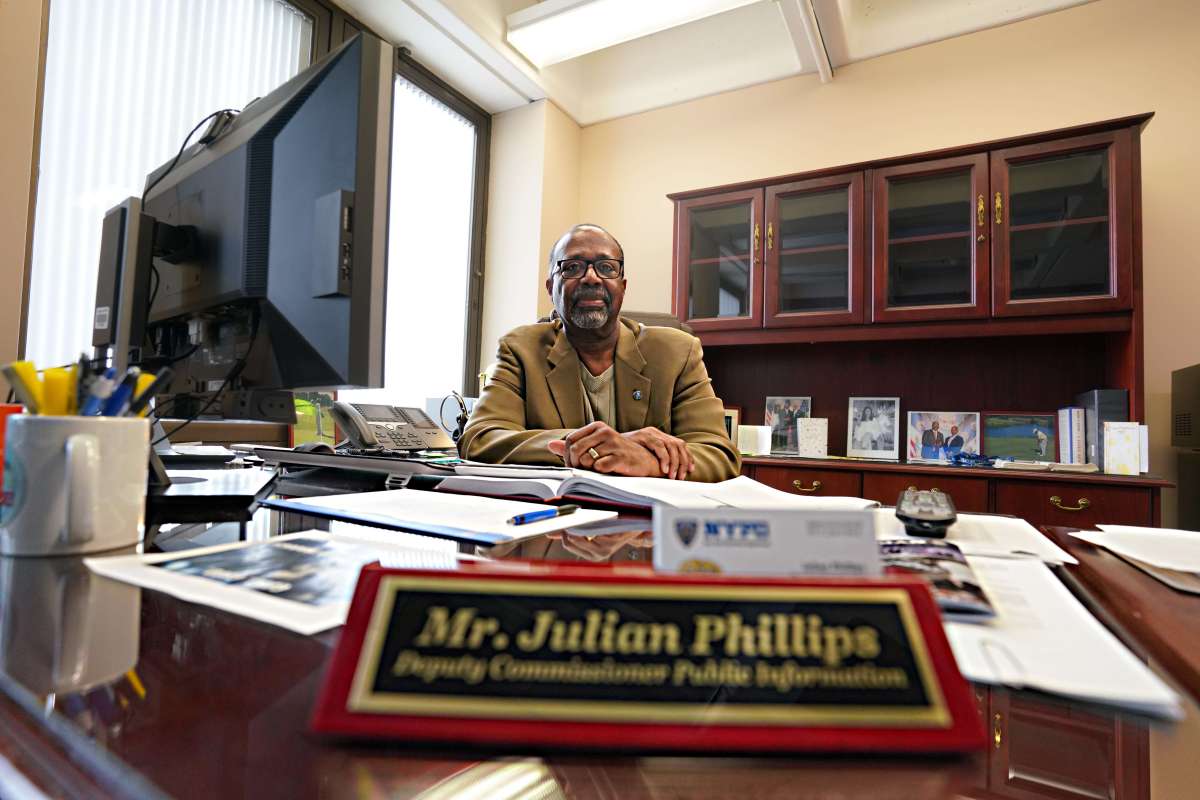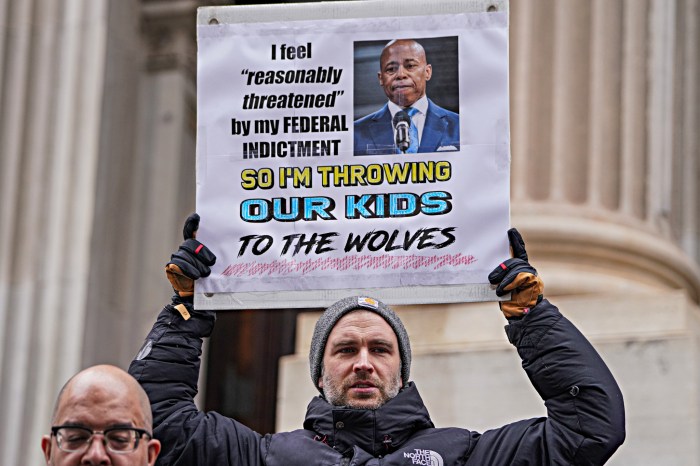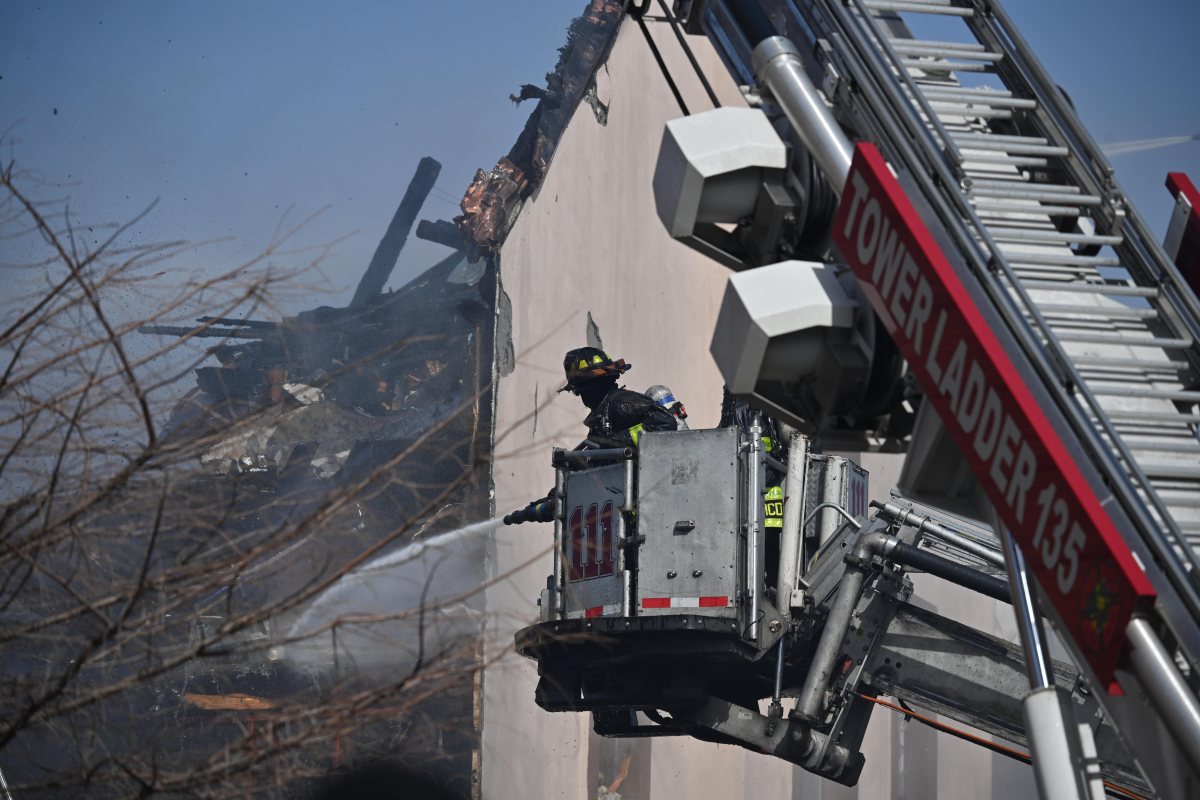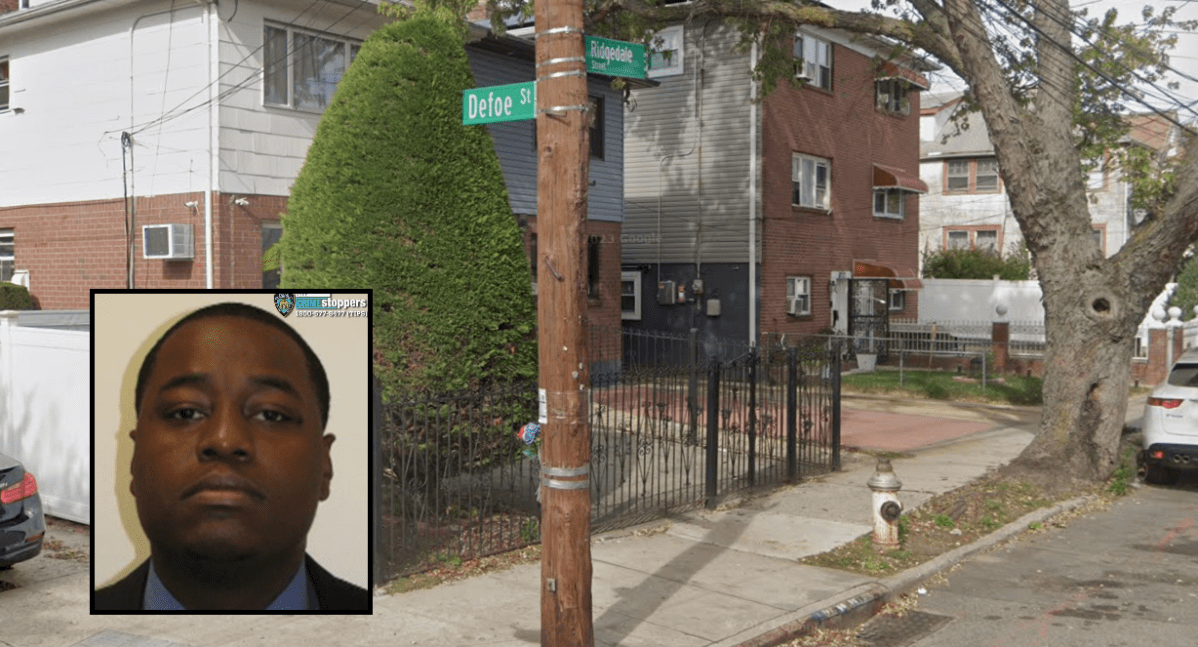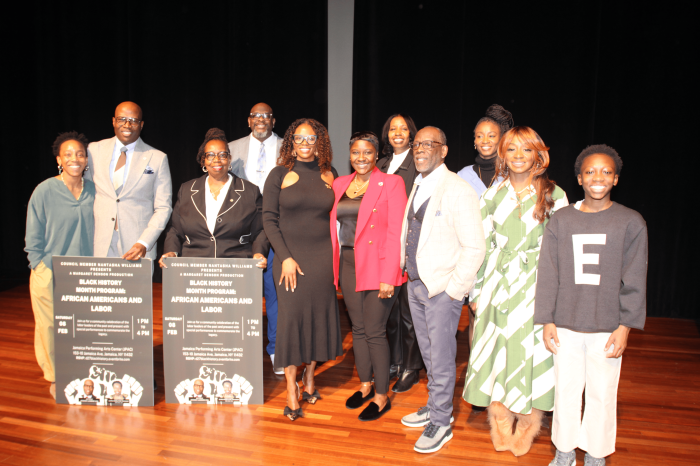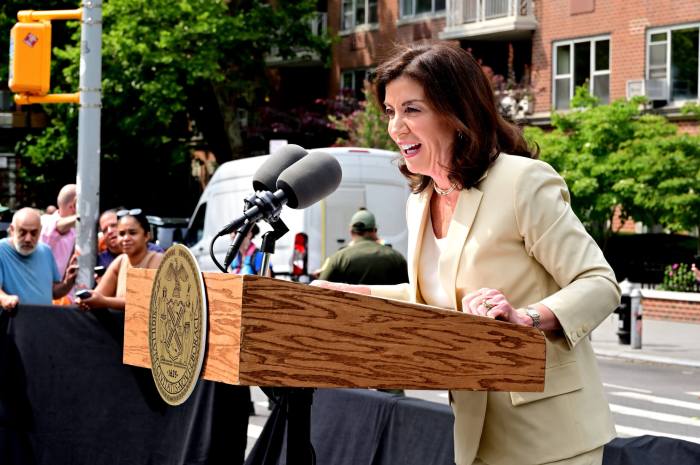Top NYPD spokesperson Julian Phillips is saying goodbye to the police department after a year of service, and he reflected on his time with the agency in a heartfelt interview with amNewYork Metro.
Phillips sat down for a one-on-one in his office on the 13th floor of police headquarters. Surrounded by newspapers and files, and fresh off of a recent surgery, the Deputy Commissioner of Public Information could be found pounding away at a keyboard — after all, there’s still much work to be done despite his impending departure in early July.
With a tear welling in his eye, he reflected on the state of the NYPD and journalism, as well as the lessons he has learned along the way.
When Phillips took on the role in 2022, he had the distinction of being the first Black commissioner, as well as the oldest in NYPD history. Yet, he is no stranger to being a first in his field — he was also the first Black anchor to be hired at Fox News. As both a journalist and a Black man, Phillips serves not just as the liaison between the Big Apple’s police officers and the public at large during a time when some have difficulty trusting the NYPD, but he also has the responsibility of being the face of public relations.
This, he said, creates a burden for him to serve both the people and the city’s thousands of police officers. While those outside of the department look at Phillips to be a bastion of truth, the Deputy Commissioner pointed out that, while he yearns to be as transparent as possible, he also had to learn that there were some things he couldn’t reveal despite his natural tendency to do so.
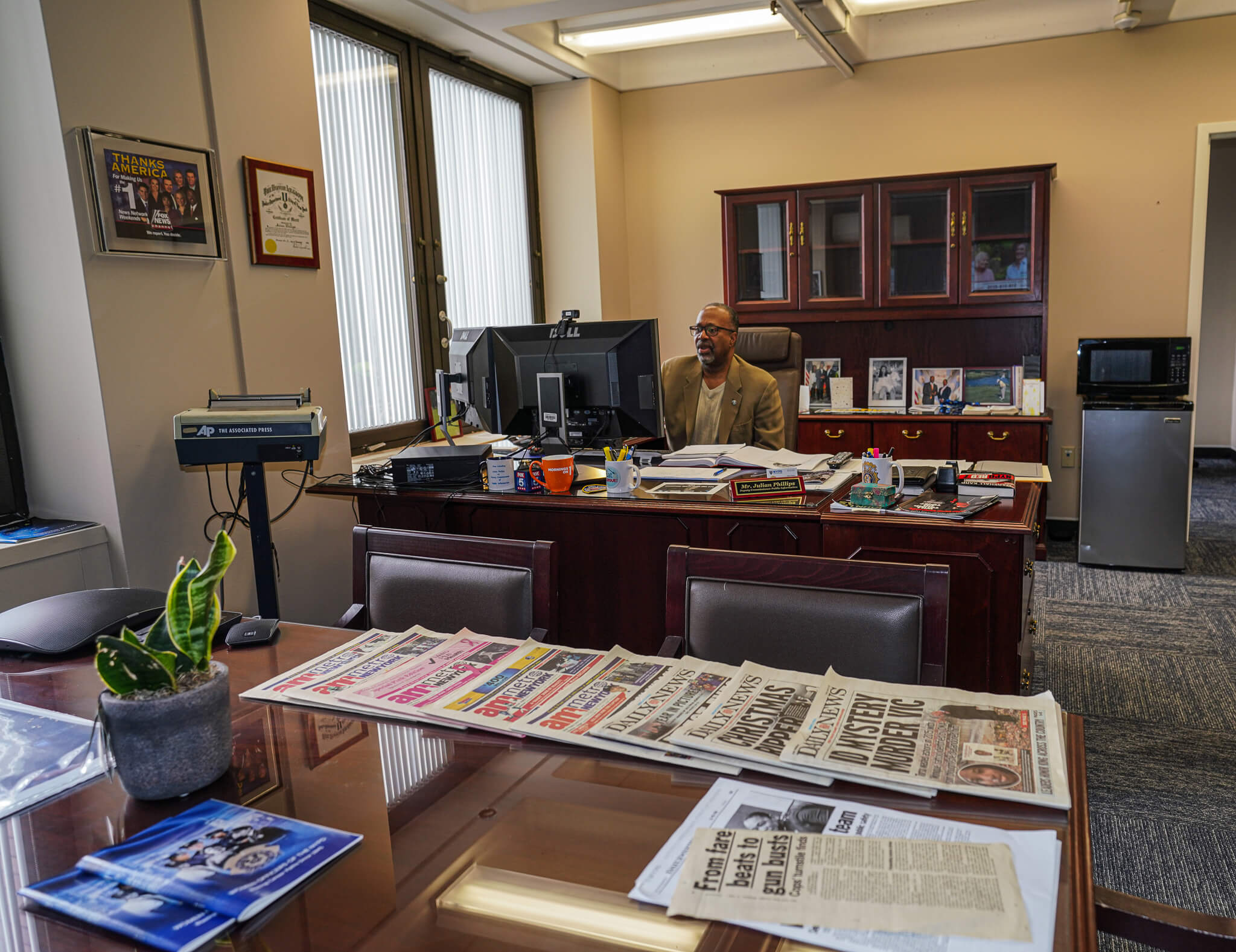
“The transition from being a journalist to a person that deals with giving out information for an agency like this is something that can be sensitive. You know, it can be very difficult at times because you just can’t give out everything. You can endanger people’s lives who are undercover, you can impede investigations,” Phillips explained. “It was an education for me of the balance of what can be given out and what can’t be given out.”
During that education process, Phillips says he has learned a lot that he will take with him going forward, including that the aforementioned burden not only rested on his shoulders but on every officer who puts on a uniform. The commissioner stated that he was taken aback to discover every facet of the NYPD — not only the dedication of officers who respond to emergencies that put their lives at risk, but also those who also spearhead youth and after school programs and serve communities in ways that go beyond simply making arrests.
“Primarily police officers come on this job to help people and sometimes that can be a very difficult thing to do, because police officers are under the microscope. And I can understand why there’s a reason for that because heavy is the crown that’s given to the person who wears it,” Phillips said. “So, when you become a police officer, and you have the power of life and death in your hands, that’s a big burden.”
And it’s one not everyone it up for, he added.
“Not everybody can do it, but by and large, what I’ve seen is the overwhelming majority of police officers who take on that burden with joy and do the job to the best of their ability,” he said. “People need to understand with the policing of it, we’re also involved in caring for the people as well.”
After having been behind the thin blue line and having spent his career in the media, Phillips knows all too well that the relationship between journalists and the NYPD can be a partnership at times, and a duel at others. Candidly, Phillips revealed his displeasure in some areas of modern journalism, feeling that too many reporters search for quick, clickbait-driven negative stories and discard the less viewer-heavy positive articles.
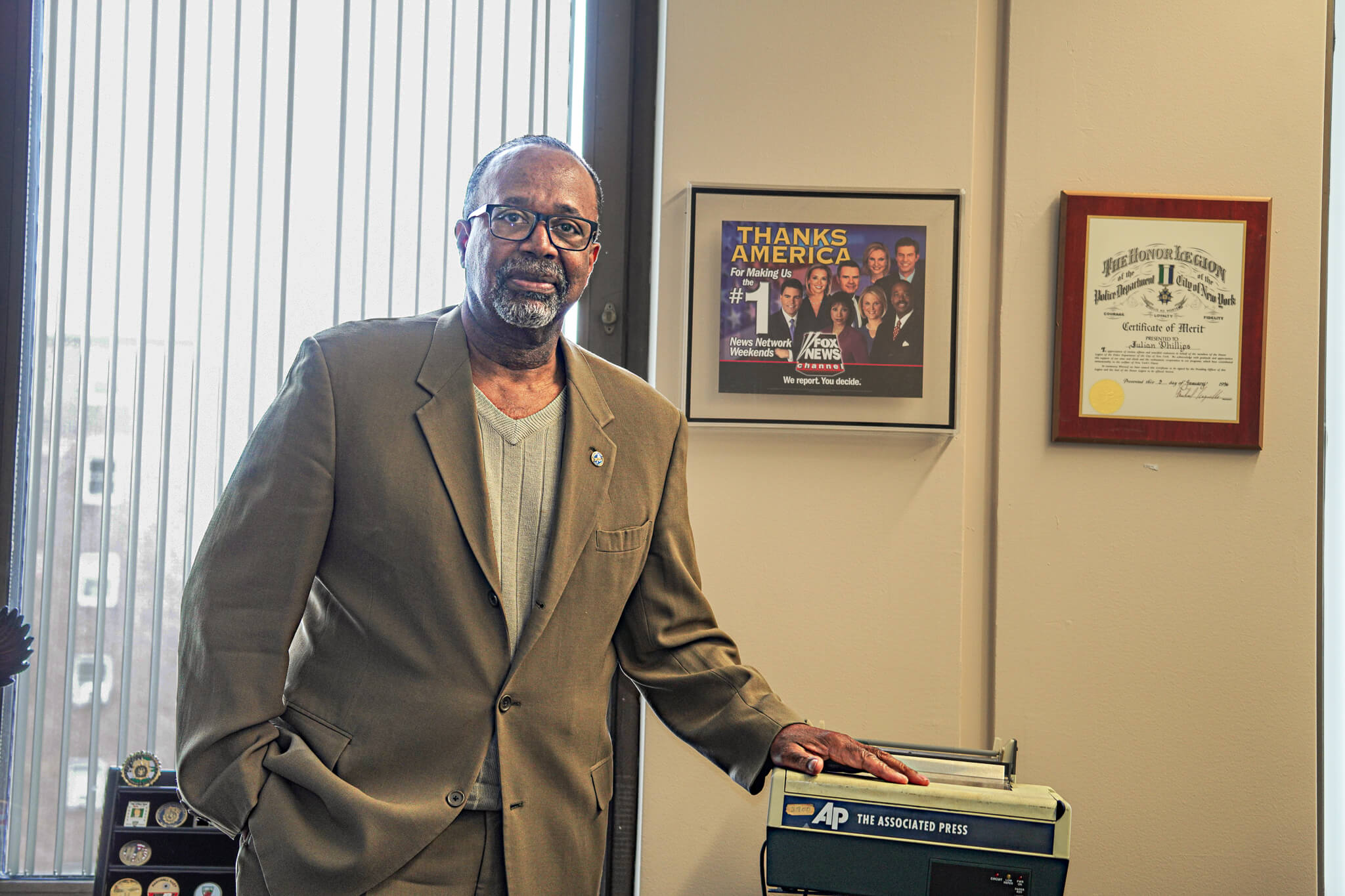
“Journalism is far different than when I got into it years ago. I find that primarily there’s not enough follow-up. There’s not enough comprehensive investigation in the stories for the most part,” Phillips said. “They’re always looking for the bad thing. You know, a negative story usually holds more weight than a positive story.”
Throughout his time working as the top spokesman, Phillips said he was honored to work alongside colleagues from DCPI and top cop herself, Police Commissioner Keechant Sewell, who he describes as an inspiration and who he believes will have left the department better than how she found it.
While praise for an agency one has worked within is not uncommon, it was clear Phillips will truly miss his place in law enforcement thanks to the tears welling in his eyes as he spoke about the commissioner. So why did he decide to leave the post? According to Phillips, the position is a rigorous one.
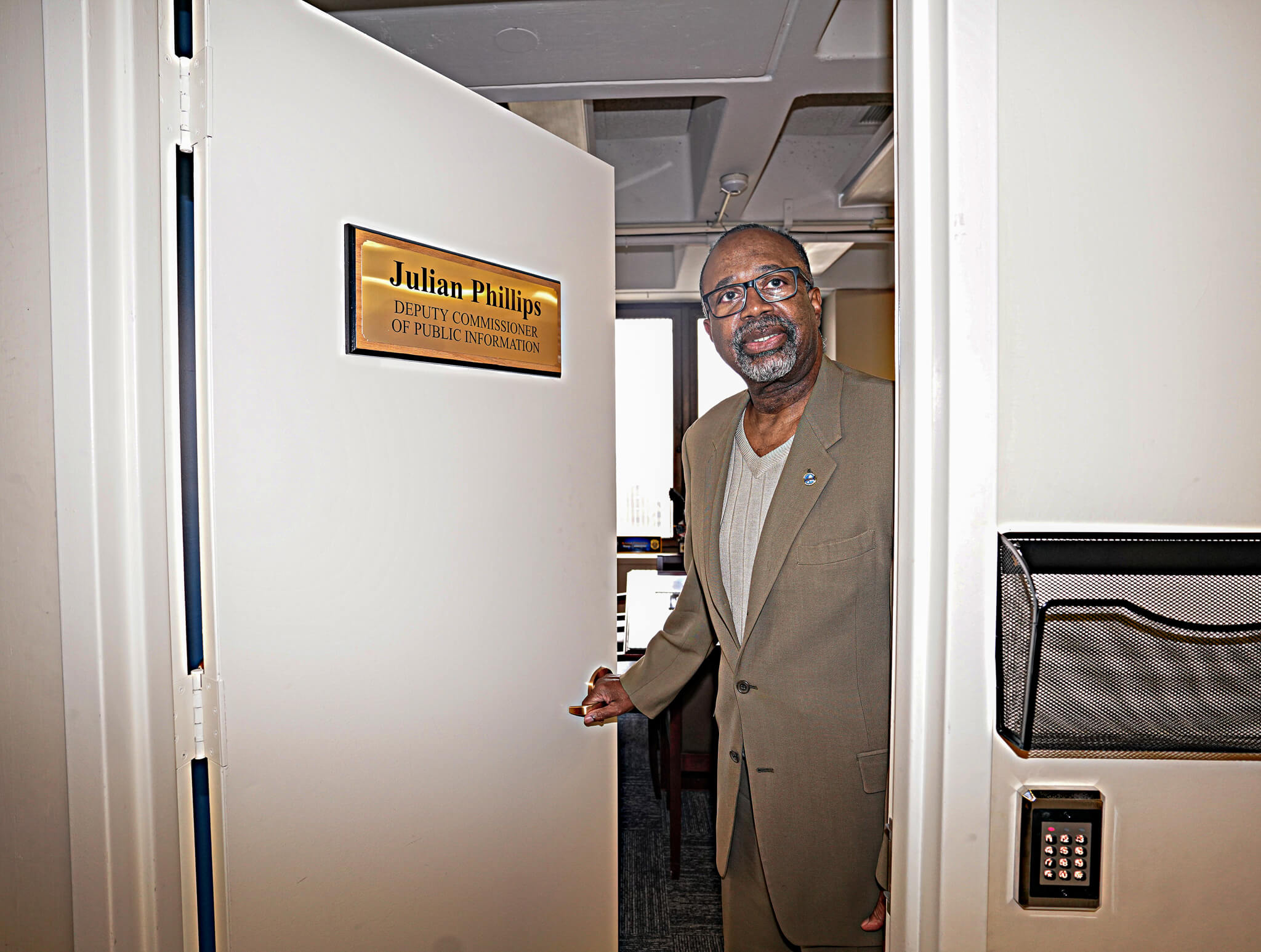
“This job could be a juggernaut. I think as one person explained it, it’s like trying to drink water out of a firehose,” he said. “Prior to coming to this job, I had already had an exemplary career. So, you know, I wanted to put in a year, and I wanted to dedicate myself to this job and I’ve done that.”
Phillips will return to PBS, where he will host a television program called “Eat and Argue with Julian Phillips,” in which purveyors of two opposing viewpoints will dine and debate topics. While he says he is excited to broadcast his show once more, he admitted that leaving his post will not be an easy task.
“I will miss it. I’ll miss my unit,” Phillips said, turning to look at a sergeant in the press department with tears again starting to break through. “I’m sitting across from somebody who I love very much, who’s wonderful.”
Read more: NYPD Officer Passes After 30 Years in Coma



